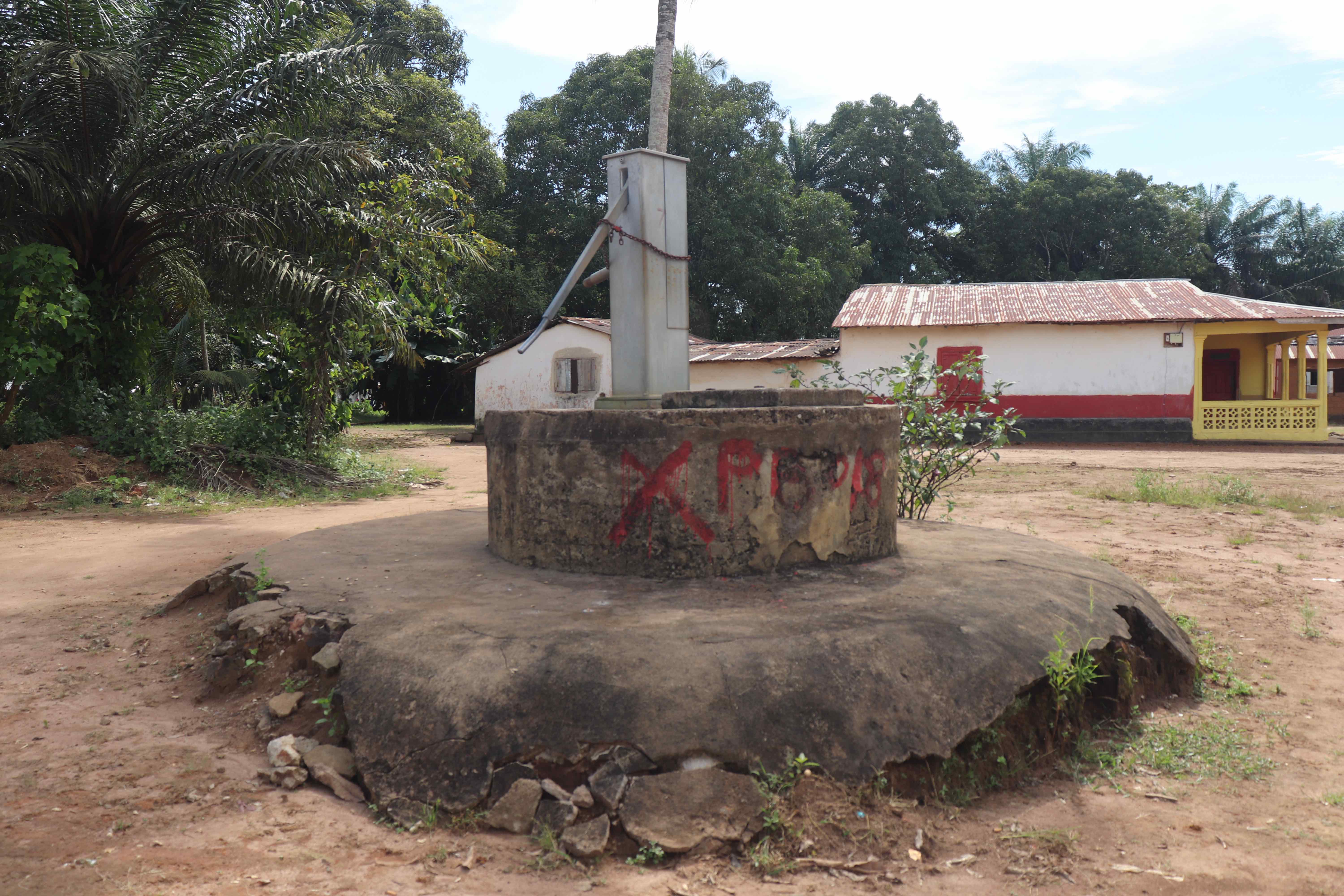Lokomasama Petifu Junction Police Post was established in 2000 during the Sierra Leone Police (SLP) restructuring. It is located in Petifu Junction, along Wallah Road, and is the head station for all the police units in Lokomasama.
Petifu Junction hosts many government institutions, police stations, hospitals, and schools. This area of the community has 150 people that rely on a hand-dug well as the primary water source, located next to the police post. It was built in 2002 by another organization.

The well is only open for three hours in the morning, then closes during the police station's busiest hours to allow the well to recharge and opens again for an hour in the evening. People who rely on the well for their daily use are left to fight for a position to collect water during the open hours and scramble to find water somewhere else when it is closed.
"It is obvious that water is life. Presently the water situation has a negative impact on me due to overcrowding and frequent breakdowns on the pump machine. It is challenging to fetch water on time to use for domestic activities. Most times I have woken my children very early in the morning to fetch water before going to school," said 49-year-old police officer Alie Abass Kamara.
The well does not have enough water to serve the local population because of climate change and frequent breakdowns. It struggles with seasonal dryness, overuse and overcrowding, and contamination.
Very early in the morning hours, police officers are deployed to stop commercial and private vehicles on the busy road to allow the women and children to cross to fetch water before going to work or school.
"I am the second child of my parents and I do most of the domestic activities in the house, more especially to fetch water. I am a sickle cell patient, but due to my mother, I cannot allow my mother to fetch water. Sometimes I have to leave home very early to attend school because I have committed to fetch water very early in the morning before the water source gets overcrowded. Sometimes I end the day without taking my bath because of the shortage of water in the house," Sarah K., a 12-year-old student.
This community needs a well rehab so it has access to sufficient, safe, clean water.
Here's what we're going to do about it:
Well Rehabilitation
The well marked for this overhaul is dry for a few months every year and needs major work to supply adequate, clean water to the community year-round. The pump will be removed, and a hand auger will be lowered inside and powered by a drill team. This hand auger will allow the team to drill several meters deeper to hit a sufficient water column that will ensure the well supplies water throughout all seasons.
As the team drills, casing will be installed, transforming the bottom of this hand-dug well into a borehole. PVC piping will connect this lower system directly to the pump, a construction that we know will also improve the quality of water.
Once this plan is implemented, everyone within the community will have access to safe drinking water in both quality and quantity, even through the dry months.
Hygiene and Sanitation Training
There will be hygiene and sanitation training sessions offered for three days in a row.
After our visit, the hygiene and sanitation trainer decided it would be best to teach community members how to build a tippy tap (a hand-washing station built with a jerrycan, string, and sticks). They will use these tippy taps for handwashing demonstrations, and will also teach about other tools like dish racks and the importance of properly penning in animals.
These trainings will also strengthen the water user committee that manages and maintains this well. They enforce proper behavior and report to us whenever they need our help solving a serious problem, like a pump breakdown.

 Borehole Well and Hand Pump
Borehole Well and Hand Pump































